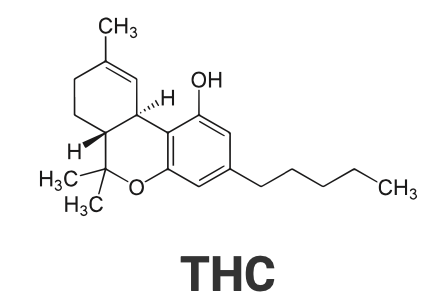Scientists have identified over 100 different cannabinoids in the cannabis plant, all with unique traits and benefits. Even with all these distinctive cannabinoids, there are two that still get the most attention: CBD and THC.
Both CBD and THC can be amazing therapeutic compounds on their own, but we at E1011 Labs think they work best in tandem. That’s why the proprietary blends of full-spectrum hemp flower we use in our Stelo™ contain a hefty amount of CBD, as well 2 to 10 percent THC. Keep reading to learn more!
What is CBD?
CBD is an abbreviation of Cannabidiol – a compound found in cannabis that has been shown to possess tons of therapeutic benefits. Consumers can use CBD in a myriad of ways. Some like the convenience of edibles; others use CBD-infused topicals to spot treat aches and pains.
Often times, CBD is extracted from hemp, which is cannabis that contains less than .3% THC. Two years ago, the 2018 Farm Bill legalized hemp on a federal level, making CBD easier to access than ever before.

One of the best ways to access the therapeutic benefits of cannabidiol is through inhalation. When taken orally, like with a tincture or a gummy, most of the CBD in a product doesn’t actually end up getting absorbed into the bloodstream. However, with inhalation methods like the elon®, drastically more cannabinoids can be utilized by the body.
What is THC?
What does THC stand for? THC stands for tetrahydrocannabinol, but more specifically, it usually refers to delta-9-tetrahydrocannabinol. This distinction is somewhat important because THC is famously the cannabinoid responsible for producing the “high” associated with cannabis consumption, but the intoxicating effects of tetrahydrocannabinol can differ based on the variety. For example, delta-8-tetrahydrocannabinol is known to induce a less cloudy effect than traditional delta-9-tetrahydrocannabinol.
The distinction is also essential in a legal context, as the 2018 farm bill refers explicitly to delta-9-tetrahydrocannabinol when referring to THC, which leaves other forms of THC, like delta-8, in a sort of nebulous legal gray zone.

THC vs CBD
Both THC and CBD have immense therapeutic potential, but they are also drastically different compounds with drastically different effects. There’s also the matter of legality – THC (as defined as delta-9-tetrahydrocannabinol) is only legal in states that explicitly allow for recreational marijuana to be sold or in states with medical marijuana programs, though in those instances, consumers will be required to acquire the necessary doctor recommendations.

Perhaps the biggest difference between THC and CBD is the intoxicating effects of tetrahydrocannabinol. Unlike CBD, THC will bind to the cannabinoid receptors in our body’s endocannabinoid systems, which can result in the feeling of being “high.” CBD, on the other hand, doesn’t bind to our cannabinoid receptors in the same way as THC, which some scientists suspect is the reason this CBD doesn’t induce intoxication the way that THC does.
CBD and THC Together
CBD and THC, while great on their own, work even better together. For one, when different cannabinoids and terpenes are present at the same time, their individual medicinal effects amplify one another and become even more effective. The theory behind this interaction is known as the entourage effect, which you learn more about by reading our blog here.
Broad-Spectrum vs Full-Spectrum
Cannabis and hemp consumers who are interested in finding products that are specifically created with the entourage effect in mind should look for two key phrases: broad-spectrum and full-spectrum
Full-spectrum products are extracts or flower that maintain the cannabinoid and terpene profile of the original cannabis plant. This means that there will be all those great smelling terpenes, as well as a myriad of different cannabinoids working together to encourage the entourage effect. Full-spectrum products will contain trace amounts of THC, though they are usually in such low percentages that users won’t feel any of the intoxicating effects.
Broad-spectrum products are similar to full-spectrum ones in that they both utilize varied cannabinoid and terpene profiles to provide a more natural experience that encourages the entourage effect. The key difference is that broad-spectrum products will not include any THC. This can be a good option for those who might be worried about sensitivity to THC or possibly failing a drug test.
All of our stelo™ are filled with full-spectrum, sun-grown, all-natural, hemp flower making them ideal options for those looking to employ the full curative potential of cannabinoids and terpenes.
Order an Elon Starter Bundle today, and find out how sublime wellness can be!

